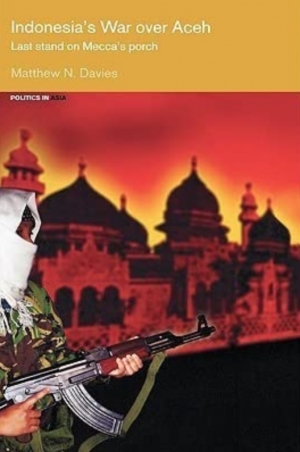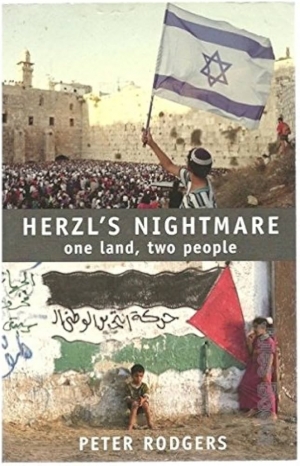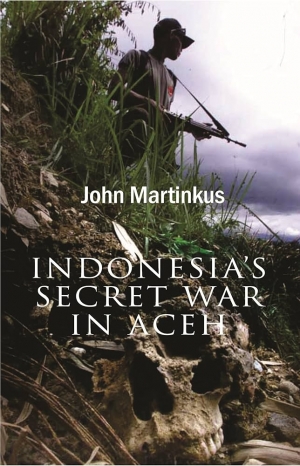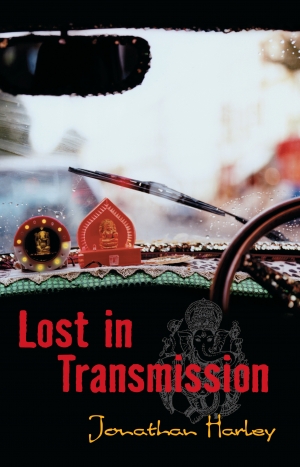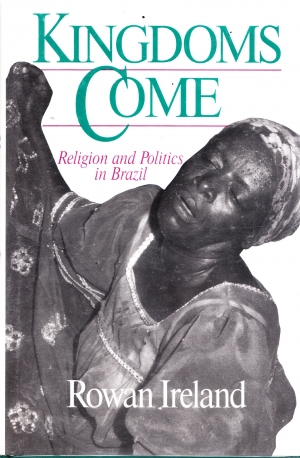International Studies
Tamas Pataki reviews 'My Israel Question' by Antony Loewenstein
When I started reading My Israel Question, the Israel Defence Force Chief of Staff had just vowed to ‘turn back the clock in Lebanon by twenty years’; and the demolition was underway. Beirut’s airport, major roads, bridges, power generation facilities and other civilian infrastructure had been bombed, and villages and densely populated suburbs were being reduced to rubble. In a report some weeks later (August 23), Amnesty estimated that 1183 Lebanese had been killed, mostly civilian, about one-third of them children. The injured numbered 4054, and 970,000 people were displaced; 30,000 houses, 120 bridges, 94 roads, 25 fuel stations and 900 businesses were destroyed. Israel lost 118 soldiers and 41 civilians, and up to 300,000 people in northern Israel were driven into bomb shelters. Israel estimates that Hezbollah, the putative object of its wrath, lost about 500 fighters.
... (read more)Damien Kingsbury reviews 'Indonesia’s War Over Aceh: Last stand on Mecca’s porch' by Matthew Davies
The intrinsic quality of a state is, in the final instance, determined by that which guarantees its claim to authority. In the case of Indonesia, such guarantee is its military, the Tentara Nasional Indonesia (TNI), while the rebellious, resource-rich province of Aceh has arguably been the site of its most concerted effort. At a time when Western political leaders and most Indonesia scholars champion Indonesia’s procedural democracy, despite a reduced political capacity, the TNI structurally remains the institution that it was. As a result, studying the role of the TNI in Aceh reveals critical insights into continuing aspects of the Indonesian state.
... (read more)Colin Rubenstein reviews ‘Herzl’s Nightmare: One land, two people’ by Peter Rodgers
Peter Rodgers, Australia’s Ambassador to Israel from 1994-97, has produced a flimsy and flawed anti-Zionist tract that tells the reader much about his mindset but does not provide anything approaching a reliable historical or contemporary guide to Middle Eastern realities. Rodgers maintains a veneer of even-handedness, but his underlying point appears anything but balanced. Israel, apparently, was born in sin through dispossessing another people. Herzl’s ‘Zionist dream came at terrible cost to both the Jewish and Palestinian peoples’, according to Rodgers, who is now firmly rooted in the ideological terrain of those diplomats and journalists who believe that Israel deserves all the pain it is suffering. Herzl’s Nightmare is nothing more than a skewed anti-Israel diatribe that builds its case by means of a selective presentation of some facts.
... (read more)John Monfries reviews ‘Indonesia’s Secret War in Aceh’ by John Martinkus
Why is it that Indonesia’s northernmost province has received so much less Australian attention than East Timor? Aceh is of course further away, and no claims are made about local people supposedly helping our soldiers during World War II. Another reason is the uniquely emotive issue of the deaths of the five Australian journalists in Timor in 1975. A suspicion arises that the main reason is that the East Timorese are Catholics while the Acehnese are Muslims. Many Australians, especially church activists, could feel something in common with oppressed fellow-Christians in a nearby territory.
... (read more)Morag Fraser reviews ‘Travellers’ Tales: Stories from the ABC’s foreign correspondents’ compiled by Trevor Bormann, ‘Lost in Transmission’ by Jonathan Harley and ‘Bearing Witness: The lives of war correspondents and photojournalists’ by Denise Leith
Here is what veteran war correspondent and Pulitzer Prize-winner Peter Arnett has to say about American political deliberation in the information age: ‘Government decisions are made by an inside group of Congress and the American public largely doesn’t give a damn. When they vote they don’t vote in terms of international policies; they vote in terms of local issues.’ New Zealand-born Arnett first worked in Vietnam for Associated Press, then in 1981 joined and subsequently became the voice and face of CNN. He has interviewed both Saddam Hussein and Osama bin Laden. How does he explain the US myopia he diagnoses? By looking at the news sources most Americans use: ‘They get talkback radio, which is skewed to the right usually; they look at a bit of television and maybe some magazine shows, and that is it. They don’t give a shit.’ But does he blame them? No. The controversial journalist (CNN, under pressure from government, dismissed him when he fronted a programme that accused the US of using sarin gas on American defectors in Laos) blames his own profession, or at least that part of the profession with corporate clout. ‘All this is the media’s fault. It is the newspapers’ fault for not including a page or two of international news every day so that people, like it or not, are going to see it.’ Nor does Amell spare the television networks: ‘CNN should be doing more, even though it has limited viewership; it should be doing more than covering celebrity stuff now, which it does domestically. Fox is a joke. There is an ignorance that is growing in America and it is frightening.’
... (read more)Peter Beilharz reviews 'Implicating Empire: Globalization and resistance in the 21st century world order' edited by Stanley Aronowitz and Heather Gautney
Empire is everywhere. You can see it in the shanty towns of São Paulo and on the coffee tables of the well-heeled in Boston and Sydney. It made us, in its British form, in the antipodes via the expeditions of Cook and Banks, and all that followed. Now it dominates our newspapers and television screens in the form of war.
... (read more)John Martinkus reviews 'A Slap in the Face from the Border' by Paul McGeough
At first glance this book looks like a quickie bashed out to take advantage of the looming war in Iraq and to cash in on the coincidence that the author – taking a break from his day job covering wars for the Sydney Morning Herald – happened to be in New York when the towers came down. But to see it in this light would be a disservice. What Paul McGeough has done is to draw on his reporting from Afghanistan, New York, Iraq, Israel, and the occupied territories, in order to give some coherence to the events of the so-called ‘War on Terror’. What we have ended up with is actually a very good rundown of the pre-existing conditions, conflicts and events of the past year and a half in disparate conflict zones. But for their being woven together by the common thread of the US reaction to 9/11, they probably would not have got into print.
... (read more)Robin Gerster reviews 'Asian and Pacific Inscriptions: Identities, ethnicities, nationalities' edited by Suvendrini Perera
Once the scourge of the conservatives, some practitioners of cultural studies are starting to make the stuffed shirts of English Departments look like mad-eyed anarchists.
... (read more)Greg Dening reviews 'Kingdoms Come: Religion and politics in Brazil' by Rowan Ireland
Kingdoms and kingdoms go, but great books last forever. Rowan Ireland’s is a great book. It catches the otherness of a Brazilian religious/political experience tenderly, humbly. It is masterfully academic and lovingly humane at the same time.
... (read more)Ralph Summy reviews 'Australian-American Relations' by Joseph A. Camilleri
Virtually every book examining the whole or part of Australia’s postwar foreign policy has taken the American connection as its focal point. Camilleri, a prolific scholar and well-known commentator on international politics, however, shifts the emphasis and integrates some new dimensions. Instead of centring his study on the isolated aims of Australian policy-makers, he assesses the relationship within the framework of the major partner’s global strategy. The first critical factors to isolate are the changing needs and capabilities of the world’s leading capitalist nation; how have the Americans perceived their interests and responded in a dynamic global environment?
... (read more)

